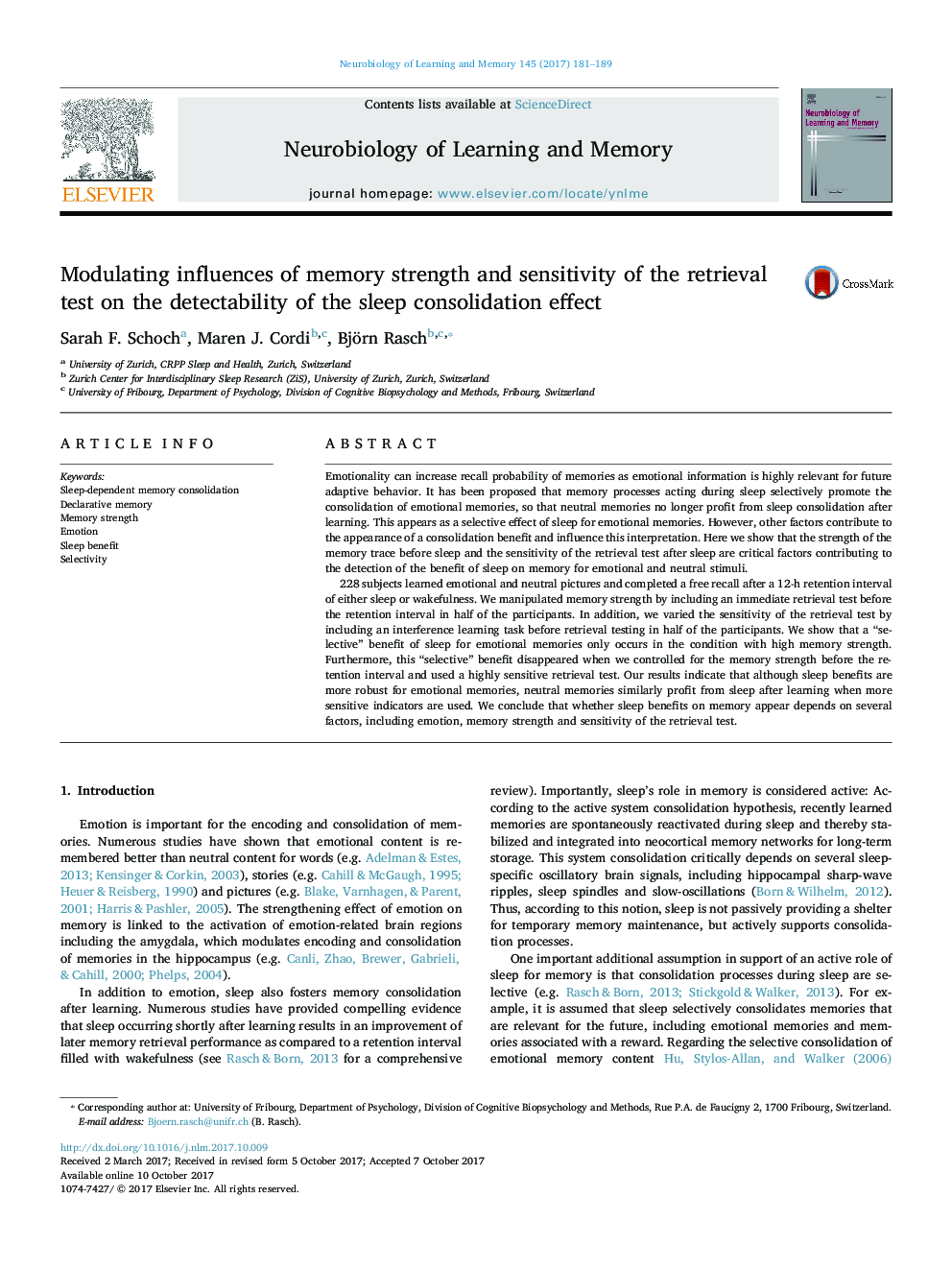| Article ID | Journal | Published Year | Pages | File Type |
|---|---|---|---|---|
| 5043098 | Neurobiology of Learning and Memory | 2017 | 9 Pages |
â¢Several factors influence whether a sleep benefit for memory can be observed.â¢Emotional memories benefit more from sleep than neutral memories.â¢This advantage disappears when initial memory strength is controlled for.â¢Sensitivity of the retrieval test influences if a sleep benefit can be measured.
Emotionality can increase recall probability of memories as emotional information is highly relevant for future adaptive behavior. It has been proposed that memory processes acting during sleep selectively promote the consolidation of emotional memories, so that neutral memories no longer profit from sleep consolidation after learning. This appears as a selective effect of sleep for emotional memories. However, other factors contribute to the appearance of a consolidation benefit and influence this interpretation. Here we show that the strength of the memory trace before sleep and the sensitivity of the retrieval test after sleep are critical factors contributing to the detection of the benefit of sleep on memory for emotional and neutral stimuli.228 subjects learned emotional and neutral pictures and completed a free recall after a 12-h retention interval of either sleep or wakefulness. We manipulated memory strength by including an immediate retrieval test before the retention interval in half of the participants. In addition, we varied the sensitivity of the retrieval test by including an interference learning task before retrieval testing in half of the participants. We show that a “selective” benefit of sleep for emotional memories only occurs in the condition with high memory strength. Furthermore, this “selective” benefit disappeared when we controlled for the memory strength before the retention interval and used a highly sensitive retrieval test. Our results indicate that although sleep benefits are more robust for emotional memories, neutral memories similarly profit from sleep after learning when more sensitive indicators are used. We conclude that whether sleep benefits on memory appear depends on several factors, including emotion, memory strength and sensitivity of the retrieval test.
